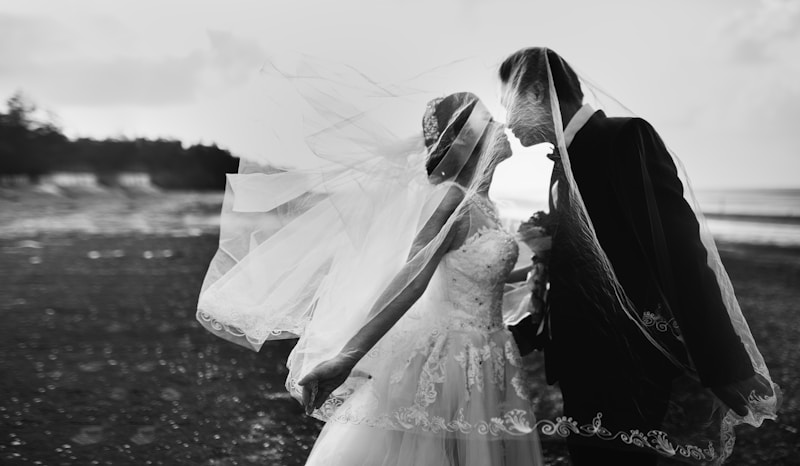Altering a Vintage Wedding Dress: Essential Considerations for a Perfect Fit
Altering a Vintage Wedding Dress: Essential Considerations for a Perfect Fit
When it comes to choosing a wedding dress, many brides-to-be dream of wearing a vintage dress that carries a unique story and timeless elegance. However, if you’ve found the perfect vintage gown and it doesn’t fit quite right, altering a vintage wedding dress is often the solution. In this article, we will explore the critical factors to consider before making alterations, the process involved, as well as tips for preserving the integrity of the dress.
Understanding the Importance of Alterations
Vintage wedding dresses can come with their own set of challenges, including outdated sizing, delicate fabrics, and intricate embellishments. Altering a vintage dress not only helps achieve the perfect fit but also enhances its beauty while retaining its original charm. Here are the vital considerations to keep in mind:
1. Preservation of Fabric and Design
Before alterations begin, it’s crucial to evaluate the fabric and design of your vintage wedding dress. Many vintage dresses are made from delicate materials like silk, lace, or chiffon that require special handling. Ensure your tailor specializes in working with vintage fabrics to avoid irreversible damage. The original design should be respected, and any alterations made should improve the dress without compromising its vintage appeal.
2. Finding the Right Tailor
Choosing the right tailor is perhaps the most critical step in the alteration process. You need someone who understands the nuances of vintage clothing and has a track record of successful alterations. Don’t hesitate to ask for recommendations or check online reviews. Investing time in finding the right professional can dramatically impact the final result.
3. Assessing the Fit
Once you’ve found a tailor, the next step is to assess how well the dress fits and determine which areas need adjustments. Common areas that often require alteration include:
| Area | Possible Alteration |
| Waistline | Take in or let out to achieve a snug fit |
| Hemline | Shorten or lengthen according to desired length |
| Bodice | Adjust for better support or comfort |
| Sleeves | Alter sleeve length or style |
| Back or Zipper | Replace or adjust for ease of dressing |
4. Costs of Alterations
Understandably, you may be concerned about the costs associated with altering a vintage wedding dress. Prices can vary greatly based on the alterations needed, the tailor’s reputation, and local market rates. On average, you might expect to pay between $100 to $600 for alterations. To get a clearer idea, here are common price ranges:
| Type of Alteration | Estimated Cost |
| Bust adjustments | $30 - $100 |
| Hem alterations | $50 - $150 |
| Bodice fitting | $50 - $200 |
| Adding/removing sleeves | $75 - $250 |
| Zipper replacement | $40 - $150 |
5. Timeline for Alterations
Timing is another crucial factor to consider when altering a vintage wedding dress. Alterations can take anywhere from a few weeks to a couple of months, depending on the complexity of the adjustments and the tailor's schedule. To avoid last-minute stress, start the alteration process at least 3-4 months before your wedding date. This way, you have ample time for fittings and any necessary follow-ups.

Styles of Vintage Wedding Dresses
Understanding the various styles of vintage wedding dresses can also influence the alteration process. Here are some popular vintage styles that many brides consider:
- 1950s Tea-Length Dresses: These dresses often feature a fitted bodice and flared skirt, ideal for alterations at the waist.
- 1920s Flapper Dresses: With their loose fits and dropped waists, adjustments may focus on the length and overall shape.
- 1970s Bohemian Styles: These gowns often have lace and flowy fabrics that might require extra care when altering.
Final Thoughts and Recommendations
Altering a vintage wedding dress is a delicate yet rewarding process. By considering fabric preservation, selecting the right tailor, assessing the fit accurately, understanding potential costs, and planning your timeline well, you can ensure that your vintage dress is customized to your dreams without losing its original soul. Remember to communicate openly with your tailor, providing them with insights into your vision for the dress while being receptive to their professional advice.
Ultimately, the goal is to create a harmonious blend of vintage charm and modern comfort so that you can walk down the aisle feeling like the most beautiful version of yourself. Embrace the journey of altering your vintage wedding dress, and you’ll not only cherish the gown but also enhance the magic of your special day.
In summary, whether you’re wondering about costs, fit, or care involved in altering a vintage wedding dress, approaching the process with knowledge and clear intentions can make all the difference. Celebrate your unique style, and let your vintage dress tell your love story!
